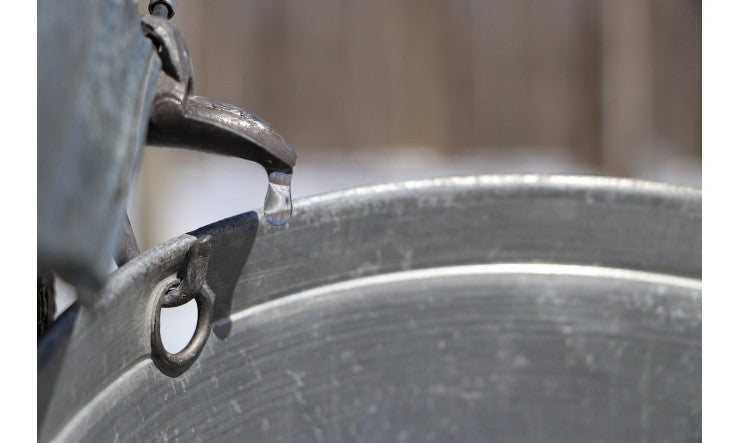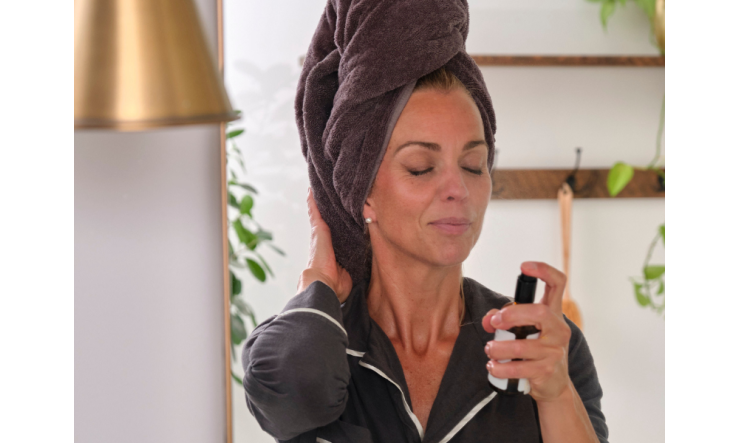Traditionally, maple water (now used to refer to maple sap obtained directly from maple trees) was consumed by the indigenous peoples of North America as a "medicinal tonic", its main use being for the production (by boiling) of maple syrup.
Here in this study, chromatographic and spectrophotometric analysis revealed that other chemical components, including sugars, amino acids, organic acids, and minerals were present in various sap samples. The biological activities, including antioxidant and anti-inflammatory effects of maple sap extract, were evaluated using in vitro enzymatic assays.
Polyphenols, widely studied for their antioxidant properties, are known to be the main phytochemicals present in maple syrup and maple-flavored food products. Maple water showed an average phenolic content of 32.01%.
To date, this is the first study reporting the antioxidant and anti-inflammatory effects of maple water. Further studies are needed to identify the unique compounds present in these extracts and evaluate their biological activities. Nevertheless, the bioassay results of the present in vitro study showed that the phytochemicals present in maple food products exerted antioxidant and inflammatory effects, which may contribute in part to the overall beneficial health effects reported in published human clinical studies.
Liya Li, Navindra P. Seeram, Quebecol, a novel phenolic compound isolated from Canadian maple syrup, Journal of Functional Foods, Volume 3, Issue 2, 2011, Pages 125-128, ISSN 1756-4646, https://doi.org/10.1016/j.jff.2011.02.004
A study was conducted on the rehydration efficacy of maple water following exercise-induced dehydration. They compared the rehydration efficacy of mineral water versus maple-flavored bottled water in 26 young men and 13 women after exercise-induced dehydration.
After analyzing hydration indicators, they concluded that maple water containing electrolytes had similar effectiveness to mineral water, but had antioxidant properties.
Matias A, Dudar M, Kauzlaric J, Frederick KA, Fitzpatrick S, Ives SJ. Rehydrating efficacy of maple water after exercise-induced dehydration. J Int Soc Sports Nutr. 2019 Feb 11;16(1):5. doi:10.1186/s12970-019-0273-z. PMID: 30744654; PMCID: PMC6371469. https://pubmed.ncbi.nlm.nih.gov/30744654/
Another study was conducted to report taste, liking, and perceived exertion following the ingestion of maple-based sports drinks and other carbohydrate drinks during prolonged exercise.
Recreationally and competitively active male subjects ingested one of four carbohydrate solutions: concentrated maple sap, diluted maple syrup, glucose, a commercial sports drink, or placebo every 30 min during 120 min of steady-state exercise on a cycle ergometer. Ratings of perceived exertion were recorded every 30 min. A questionnaire was administered to assess sensory characteristics (sweetness, sourness, refreshing, and overall taste) and liking (sweet, sour, and overall) 30 min before (immediately after the first ingestion) and immediately after exercise.
The results showed that sweetness was perceived to be higher in those who ingested the maple sap. Additionally, those who ingested the maple sap reported a significantly lower rate of perceived exertion than those who ingested a placebo.
She concluded by saying that a sports drink containing maple products is highly valued during prolonged exercise and appears to be a viable alternative to more common carbohydrate sources.
Lavoie L, Tremblay J. Ingestion of maple-based and other carbohydrate sports drinks: effect on sensory perceptions during prolonged exercise. J Int Soc Sports Nutr. 2020 Dec 9;17(1):63. doi:10.1186/s12970-020-00384-3. PMID: 33298104; PMCID: PMC7724719. https://pubmed.ncbi.nlm.nih.gov/33298104/


































































Leave a comment